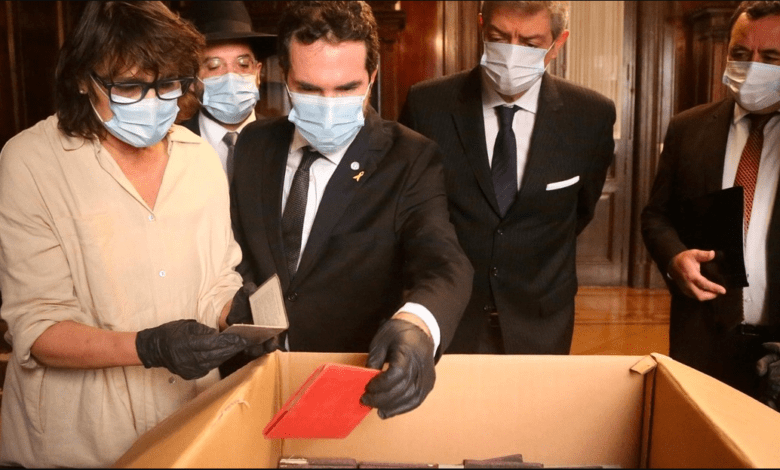Hundreds of Nazi documents found in Argentina’s Supreme Court basement

In the basement of the Supreme Court of Argentina in Buenos Aires, 12 wooden boxes containing hundreds of passports, membership cards and propaganda materials of the Nazi Party were accidentally discovered. The documents have been under court seal for more than 80 years and may shed new light on the extent of the Nazi presence in Argentina after World War II. About this informs Clarion.
Among the discovered materials are identification cards of members of Nazi organizations, alleged signatures of Adolf Hitler, as well as postcards, photographs and documents delivered to Argentina as early as 1941 aboard a Japanese ship. Some of the papers were issued by a German trade union organization and decorated with Nazi symbols.
The investigation is currently being conducted by the judicial authorities together with the Buenos Aires Holocaust Museum. All documents have been moved to a specially equipped, guarded room, where the inventory is ongoing. Experts suggest that the archive may contain valuable information about the escape routes of the Nazis to Argentina and possible sources of funding for these operations. Seven boxes have already been opened, their contents classified, documented and stored by order of the Supreme Court for further evaluation for a connection to the Holocaust or the movement of Nazi figures.
These boxes arrived in Argentina on June 20, 1941 on the Japanese ship *Nan-a-Maru* in the form of diplomatic mail from the German Embassy in Tokyo. The cargo was declared as personal effects, but customs officials detained it pending instructions from higher authorities. Representatives of the German embassy refused to issue the necessary documents and left the customs office, later demanding that the boxes be returned to Tokyo.
In August 1941, after lengthy deliberations, the commission opened five of the 83 boxes. They found “scientific, literary and cultural” books, but some of the materials contained elements of Nazi propaganda that contradicted international agreements. According to historians, Nazi criminals, including Adolf Eichmann and Josef Mengele, were hiding in Argentina after the end of the war.





